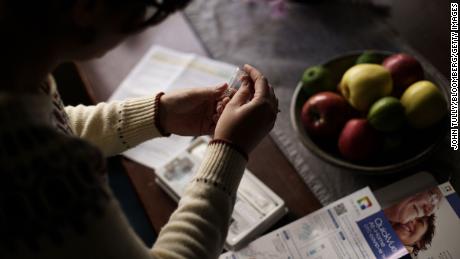
CNN: The question on a lot of parents’ and caregivers’ minds is masks. Will you be sending your children back to school with masks?
Dr. Leana Wen: No, although I respect other parents and caregivers who are making a different decision from us based on how they view the risk of Covid-19 versus the downside of masking for their children.
I also think it’s reasonable for parents and caregivers to make a different risk calculus. Children are already at low risk for severe illness from Covid-19. Vaccination further reduces that risk. In addition, the currently circulating variants are so contagious that it’s quite hard to avoid infection. Some families could decide that they are not prioritizing avoiding infection anymore, and therefore are choosing not to mask their children at school.
That’s what my family has decided. Our views have changed a lot since the beginning of the pandemic, when there was much unknown about the impact of Covid-19 on children. At that time, we followed extremely strict precautions, including masking at all times indoors and only associating with others outdoors. For us, the turning point was after Omicron came to dominate, because it became even more difficult to avoid Covid-19 despite precautions. Getting our children vaccinated also gave us even more reassurance that we could replace masking with the protection that vaccination provides. We know our children could still get Covid-19, but the risk of severe illness is very low.
There is also the question of the perceived cost of masking to our children. Our kids’ school is not requiring masks and based on our conversations with other families, very few parents are going to choose to mask their kids. My almost 5-year-old, who is starting kindergarten, has speech delays that have improved since his schools went mask-optional in the spring. My 2-year-old, who is just starting preschool, does not consistently wear masks anyway. For us, the benefit of requiring our kids to mask does not outweigh the downside at the moment. That could change if a more dangerous variant were to emerge in the future.
CNN: Are there circumstances where you’d advise parents and caregivers to mask their kids at school?
Wen: It all comes down to how much the family wants to avoid Covid-19. Let’s say that there is a medically vulnerable member of the household who could become very sick if they contracted the coronavirus. It would make sense for everyone in that household to be extra cautious in order to not infect that person.
Families could also decide to mask before visiting vulnerable loved ones. For example, if a grandparent who is immunocompromised is coming to stay for a week, the kids can mask in school the week before and during that visit. I’d further advise that the kids take rapid tests right before the grandparent arrives, and that everyone — including the adults — avoid indoor gatherings for the week before and during the visit.
CNN: Speaking of testing, how often should families be testing their kids?
Wen: Some schools may have a regular testing cadence or a random testing protocol to evaluate the level of Covid-19 in their student body. Others may just ask that kids be tested if they are symptomatic or have a known exposure. Again, how much families want to test their kids will depend on the degree to which they want to avoid the coronavirus. Many families see Covid-19 as they do any other viral illness, while some are still very cautious to try to avoid it for a number of reasons, including the unknown future risk of long Covid.
CNN: Should parents and caregivers hold back on any extracurriculars or playdates for their kids?
Wen: Any decision-making needs to weigh the desire to avoid Covid-19 versus the downside of keeping children away from activities that they would enjoy. Given our family’s risk calculus, I am not holding back on activities for my children. My son is playing soccer, which sometimes happens indoors. My daughter is in a music class with lots of singing, which is mostly indoors. We are going on playdates, both outdoors and indoors.
By the way, this is not to say that my family isn’t following any precautions. My husband and I mask at airports and on trains. We are not taking our kids to the aquarium or science center when it’s super crowded, with tons of people packed together. We are not trying to contract Covid-19 — but we are also not going to change our lives as we have for most of the pandemic to try to avoid it. And we fully understand if other parents may decide to be more cautious and stick with primarily outdoor activities.
CNN: What happens if kids contract Covid-19 — how long should they stay out of school? What if someone in their family gets Covid?
Some schools have different protocols than this, so make sure to check with your school to make sure you are following their rules.
CNN: Should families get their children vaccinated if they haven’t already?

التعليقات